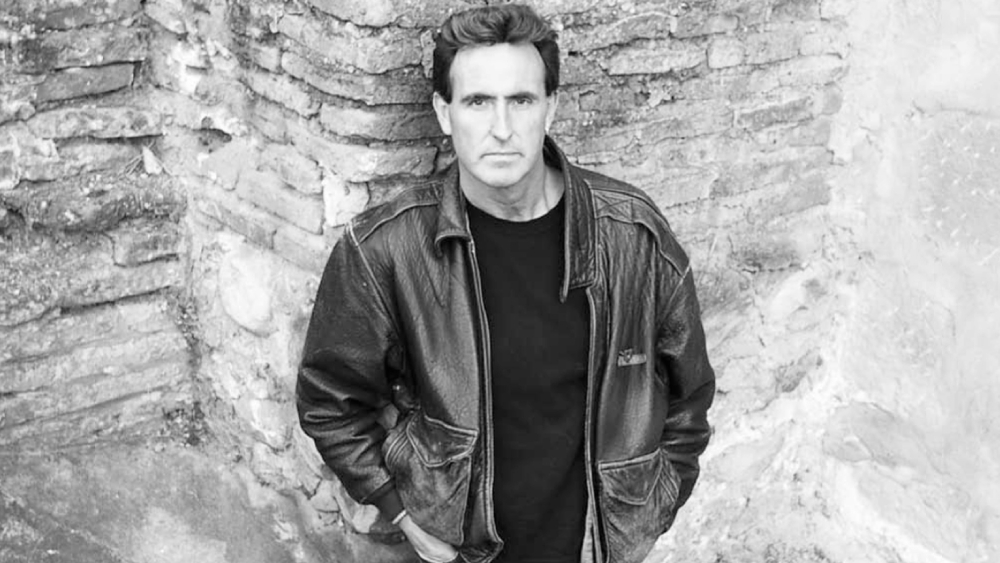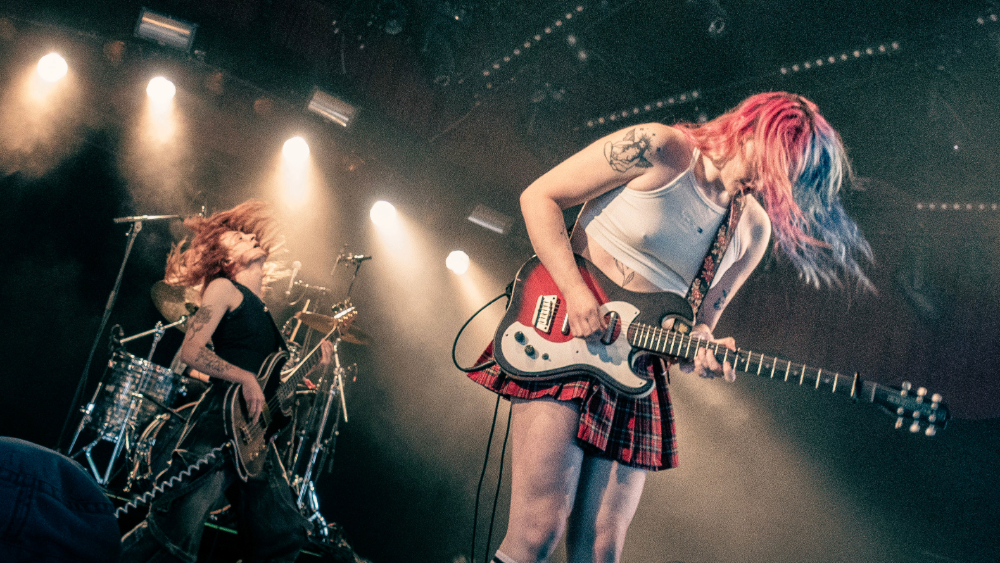‘I’ve released my own music; received an MBE; worked with Lamont Dozier and Stevie Wonder — legends in this game,’ notes artist, songwriter and multi-instrumentalist Omar Lyefook. ‘The fact that I’ve been able to do this, and continue to, I [have to] give thanks.’
This feeling of gratitude comes as Omar celebrates 40 years as a recording artist, topped off by the release of his ninth studio album Brighter The Days back in June. ‘If you make music and people are still willing to listen to it, then it’s clearly a blessing and something I need to do,’ he adds.
Frequently cited as a defining voice in modern Black British music, Omar’s influence can be traced back to the original release of his breakout single There’s Nothing Like This in 1990. The track, a silky distillation of soul, funk and jazz, wears its inspirations on its sleeve, providing an insight into Omar’s formative musical beginnings.
Growing up in Canterbury as part of a musical family, Omar’s father Byron — whose label Kongo were behind the 1990 release of There’s Nothing Like This — drummed for the likes of Doris Troy, Bob Andy and Marcia Griffiths. Unsurprisingly, Omar revelled in exploring his dad’s extensive record collection.
‘I started to write music when I was 13 or 14, and I was listening to Level 42, Jeff Lorber and Stevie Wonder. All of these people were my vibe,’ Omar recalls to M. ‘Then there was Yellow Magic Orchestra, Dennis Brown, John Holt — just an amazing mixture of people.’
‘If you make music and people are still willing to listen to it, then it’s clearly a blessing.'
Bolstered by his years of classical music training — he played trumpet, piano, bass and percussion while studying at Chetham's School of Music in Manchester and the Guildhall School of Music in London — Omar has long been fascinated by the process of writing and performing music: ‘I would always be making up songs while playing the piano at school. That’s what helped me get through to where I am now.’
His early songwriting ambitions were fuelled by listening to his favourite artists, often moving him to create his own takes on a range of funk and soul cuts. ‘I remember coming across this album by the Ohio Players, which was the inspiration for There’s Nothing Like This,’ the 56-year-old tells M. ‘There’s a song on their Skin Tight record called Heaven Must Be Like This, which blew my mind completely.’
Omar’s love of funk and soul in the late eighties was at odds with the emerging music genres in the UK at the time. ‘It was acid house, the early days of hip hop — everything was sequencers and synthesisers, which to me seemed like fake stuff,’ he says about the domestic music scene he encountered as he reached his twenties. ‘Why was no one making the kind of music played by the Ohio Players? If you listen to There’s Nothing Like This, you will hear exactly where my song came from.’
Written by Omar, the musician played bass, drums and keys on the track, while his friend Phil Hudson provided the guitar parts. ‘I did this demo of the song and loved it,’ the former adds. ‘I took it to my dad and his businesspeople. They listened to it for an hour and were like, “There’s something in this song.” When we released it in September 1990, it went into the charts with no campaign, video or promotion — that alone said the song was something special.’
The track was reissued the following summer on Gilles Peterson’ label Talkin’ Loud and finally cracked the UK top 20. ‘It was me [and the likes of] Young Disciples, Incognito and Galliano [on the Talkin’ Loud roster] — we were all trying to do the same thing,’ Omar says. ‘We loved Marvin [Gaye] and Stevie [Wonder], but we did it in our English way. It’s very particular to England, this mixture of English and West Indian culture. I call it, “Knees Up Mother Brown and Lively Up Yourself” — it’s a real combination.’
Omar’s songwriting spark remains 35 years on from There’s Nothing Like This, evidenced by his latest LP Brighter The Days. Featuring the likes of Paul Weller, Giggs and India.Arie, the album is indicative of his enduring creative ambition.
‘Since those early days, [songwriting] has always been happening,’ Omar says. ‘There’s a song on the album called Lovey Dovey which features Eric Roberson and Raheem DeVaughn. That started [life] in about 2007 and passed through different albums, but just didn’t sit right until now. I look at music as [being like] wine: you have to keep it and wait until it gets to its best. Only then is it ready to drink.’
Omar was honoured in 2012 as he was awarded an MBE for services to music. ‘I’ll tell you something I’ve never told anyone else,’ Omar begins. ‘I cried when I got that letter.
‘The only person I needed to ask for permission about collecting it was my dad — he’s a hardcore Rasta. If he’d have said, “Don’t do it, we’re against the Empire,” I wouldn’t have taken it. But it was the opposite. He and my mum dressed up in their best clobber, we went to Buckingham Palace and just celebrated what I’d been doing. I’m not mainstream — you don’t see me on TV or radio all the time — so to be recognised made me very happy.’
'I cried when I got the letter awarding me an MBE.'
With four decades of experience in a creative world where the earth under your feet can often move without warning, persistence, Omar says, is key.
‘You have to stick at it if you want to succeed, but also find a way of making an impression and sticking out in people’s minds so they remember you,’ he says. ‘It’s challenging now as there are so many things to worry about, whether it be AI coming for our work or how to earn enough from your music to pay the bills. PRS royalties, though, have always been important to a writer like me — you need to keep on top of it and be serious about your catalogue.’
Omar is speaking to M after wrapping a US tour which took in 11 shows across 10 cities, further strengthening his international appeal. With more gigs planned after a London headline show in November, the artist is continuing to live his dream. ‘We used to play at the Royal Festival Hall with these orchestras [during my classical training],' he recalls. 'As a percussionist, I was always at the back. I remember saying to myself, “One day, I’m going to be at the front of this place”. I manifested it: [years later,] I headlined the Hall — you have to believe in your dreams.’
As an authentic and committed creator, Omar believes his music is connecting now more than ever due to a thirst among his audiences for something ‘real’.
‘They want to know that that person is singing; that they’re being given an experience by someone who means it,’ he adds. ‘They don’t want anything fake; they want the realness. That’s what I’ve been training for.’
Omar's latest album Brighter The Days is out now.





